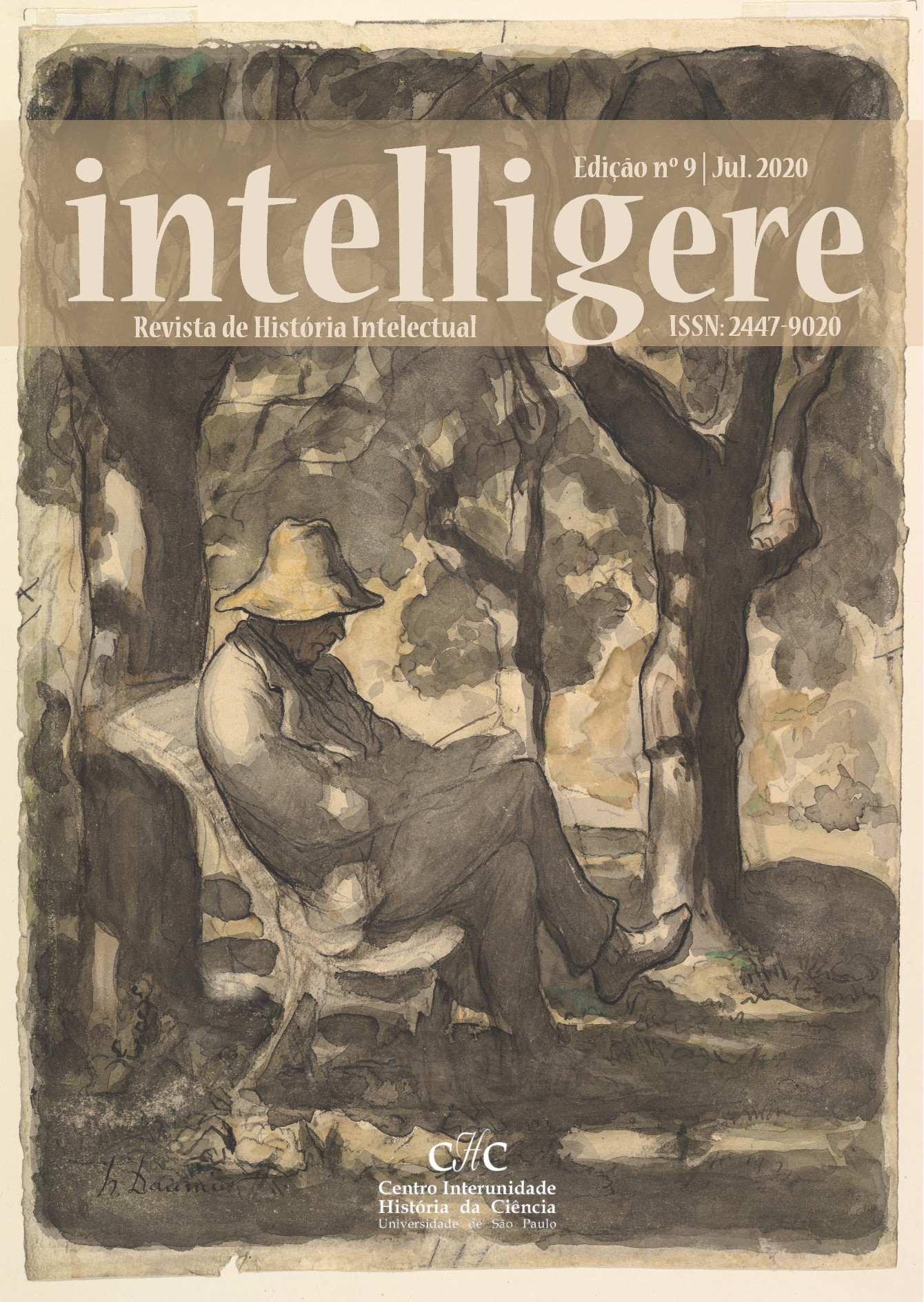Manifest for an economy with a moral sense and in the persistence of the search for social justice
DOI:
https://doi.org/10.11606/issn.2447-9020.intelligere.2020.172911Keywords:
Oikonomia, Crematistics, Philosophy of morality, Theory of justice, Positive and negative freedomAbstract
The prevailing economic system has been able to reduce social gaps, there has been a broader scope, since the consolidation of the capitalist production system, much of humanity has been forced to live in conditions of precariousness, poverty and social injustice, leaving extreme end of threatening his own life. The large multinationals and governments that support their actions for their own benefit with the support of a large number of orthodox economists who have created a perverse economic system and economy, whose functions are to serve the ruling class by perpetuating its power through the use of creams. . instead of ethics and economics, the creation of mathematical models and the idea that growth and development are inclusive; The historical, ethical-philosophical origins of economic science, which advocated for social justice and the elimination of economic and social inequalities, have been forgotten.
In this text, he makes a critical historical reflection of economics and its erroneous interpretation of crematistics and its performance statements in its mathematical modeling.
Downloads
References
ARENDT, H. (2006). Los origenes del totalitarismo. Alianza: Barcelona.
ARISTOTELES. (2004). Politik. Madrid: Gredos.
AUSTIN, J. L. (1982). Cómo hacer cosas con palabras: Palabras y acciones. Barcelona: Paidós.
BAÑOS BONCOMPAIN, A. (2011). Posteconomía. Barcelona: El rojo y el negro.
BERLIN, I. (2014). Dos conceptos de libertad; el fin justifica los medios. Mi trayectoria intelectual. Barcelona: Alianza.
DALY, H. (2016). Real-World Economics Review. Retrieved 27 April 2018, from http://www.paecon.net/PAEReview/
EMMER, M. (2004). Mathematics and culture. Nueva York: Durham.
GÓMEZ CAMACHO, F. (1998). El entorno tradicional según Aristóteles y los escolásticos. En F. Gómez Camacho, Economía y Filosofía moral (pág. 155). Madrid: Sintesis.
HEIDEGGER, M. (2003). Philosophical and political writings. Nueva York: Continuum.
HEINDEBERG, R. (2009). El final del crecimiento. Barcelona: El viejo topo.
HIRSCH, F. (1978). The ideological underlay of inflation. En F. Hirsch, & G. John, The political economy of inflation (pág. 274). Cambridge: Harvard University Press.
http://www.paecon.net/. (septiembre de 2000). http://www.paecon.net/. Recuperado el 12 de mayo de 2015, de http://www.paecon.net/: http://www.paecon.net/HistoryPAE.htm
KEYNES, J. (1945). First annual report of the arts council. London.
KOUTSOYIANNIS, A. (1974). Theory of Econometrics, Macmillan. California: Macmillan.
MANKIW, G. (2003). Principios de Economía. McGraw Hill.
MARAÑÓN, B. (2014). Buen vivir y descolonialidad. Critica al desarrollo y la racionalidad instrumentales. Mexico: UNAM.
MARSHALL, A. (2003). Principios de Economía. Madrid: Sintesis.
MAX-NEEF, M., & B. SMITH, P. (2011). La economía desenmascarada. Barcelona: Icaria.
MIRÓN PÉREZ, M. D. (2004). Oikos y Oikonomia: El analisis de las unidades domésticas de producción y reproducción en el estudio de la Economìa Antigua. Gerión, 61-79.
PASSET, R. (2012). Las grandes representaciones del mundo y la economía a lo largo de la historia. Madrid: Clave intelectual.
RAWLS, J. (1998). Teoría de la justicia. Mexico: Fondo de cultura económica.
RAWLS, J. (2002). La justicia como equidad: una reforomulación . Barcelona: Paidós.
ROBERTEXTO.COM. (10 de mayo de 2015). robertexto.com. Recuperado el 10 de mayo de 2015, de roberttexto.com: http://www.robertexto.com/archivo1/rousseau.htm
SCHUMPETER, J. (1933). The common sense of econometrics. Econometrica 1, 5.
SEDLACEK, T. (2011). Economia del bien y del Mal: La busqueda del significado economico desde Gilgamesh hasta Wall Street. México, D.F.: Fondo de cultura economica.
SEDLACEK, T. (2014). Economía del bien y del mal. La búsqueda del significado económico desde Gilgamesh hasta Wall Street. México: Fondo de Cultura Económico.
SEN, A. (1998). Nuevo examen de la desigualdad. México: Alianza.
SEN, A. (1999). La economia es una ciencia moral. Girona: Cahiers libres.
SEN, A. (2000). Desarrollo y libertad. Barcelona: Planeta.
SEN, A. (2002). Sobre Etica y Economía. Madrid: Alianza.
SMITH, A. (1992). La riqueza de las naciones. México: Fondo de cultura economica.
SMITH, Y. (2010). Econned: How unenlightened self interest undermined democrac and corrupted capitalism. En Y. Smith, Econned: How unenlightened self interest undermined democrac and corrupted capitalism (pág. 134). New York: Kindle edition.
ZIZEK, S. (2002). ¿quien dijo totalitarismo? cinco intervenciones del mal uso de una nocion. Madrid: Pre-Textos.
Downloads
Published
Issue
Section
License
Autores que publicam em Intelligere concordam com os seguintes termos:
- Autores mantém os direitos autorais e concedem à revista o direito de primeira publicação, com o trabalho simultaneamente licenciado sob a Licença Creative Commons Attribution que permite o compartilhamento do trabalho com reconhecimento da autoria e publicação inicial nesta revista.
- Autores têm autorização para assumir contratos adicionais separadamente, para distribuição não-exclusiva da versão do trabalho publicada nesta revista (ex.: publicar em repositório institucional ou como capítulo de livro), com reconhecimento de autoria e publicação inicial nesta revista.
- Autores têm permissão e são estimulados a publicar e distribuir seu trabalho online (ex.: em repositórios institucionais ou na sua página pessoal), com reconhecimento da autoria e publicação inicial nesta revista.




